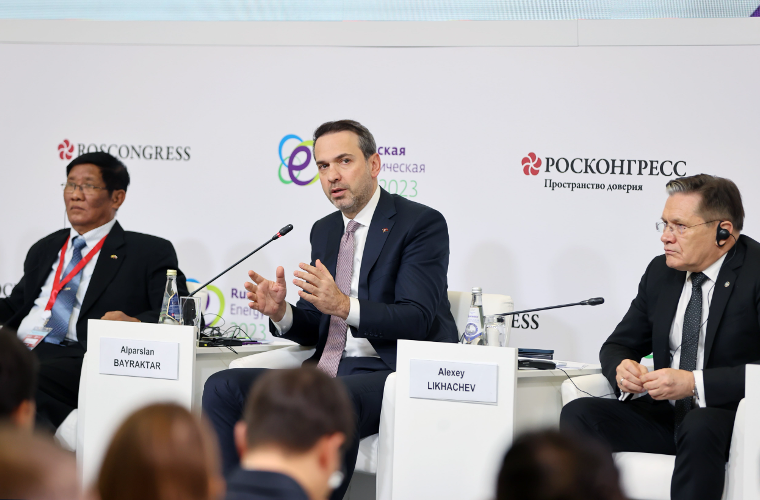Türkiye aims to build 60 gigawatts of renewables capacity by 2035
Turkish energy minister says approximately 55% of installed capacity is generated from renewables

Türkiye needs to install 5 gigawatts of solar and wind power capacity 'every year” to reach its medium-term, net-zero goal of producing 60 gigawatts by 2035, the country’s energy minister said Wednesday during “Russian Energy Week” in Moscow.
Alparslan Bayraktar said the country has only three decades to transform the energy system and the country’s agriculture, buildings and industrial sectors.
He emphasized that renewables have great potential to meet the 2035 target of supplying reliable and affordable energy 'in an environmentally friendly manner.' To that end, the country has undertaken significant investments in renewables and energy efficiency, not only to meet its growing demand but also to decarbonize energy markets.
“We currently have roughly 55% installed renewable capacity in Türkiye, but we would like to increase this amount and we have a medium-term plan and target up to 2035,” he said.
To meet this target, Bayraktar said Türkiye needs to install 5 gigawatts of solar and wind power generation each and every year. In total, 60 gigawatts of additional installed renewable capacity are required over the next 12 years.
The minister underscored Türkiye’s continuous investments in nuclear energy as part of its energy mix, the first of which, the Akkuyu Nuclear Power Plant (NPP), in southern Mersin, will generate 4.8 gigawatts of power when operational.
Plans are also afoot to build two more nuclear plants in the country.
Affordable energy just as important as reliable supply
Bayraktar emphasized the importance of affordable energy supplies as well as reliable energy in light of Turkey's expanding energy demand, which derives not only from the residential sector but also the industrial sector.
“We need to find the right balance between supplying reliable energy and, at the same time, having competitive energy prices,” he said.
Despite the fact that renewables are now more accessible due to a reduction in initial capital expenditure, Bayraktar stated that the country will also look to invest in new energy technologies such as hydrogen, batteries and storage.



